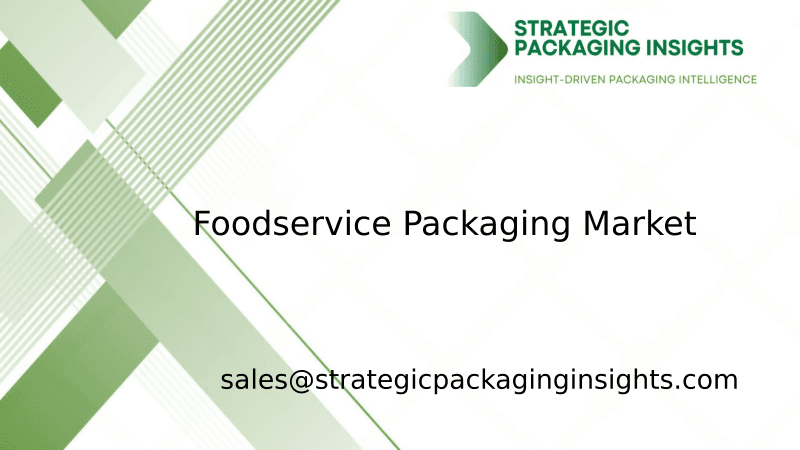- Home
- Packaging Products
- Desiccant Packaging Film Market Size, Future Growth and Forecast 2033
Desiccant Packaging Film Market Size, Future Growth and Forecast 2033
Desiccant Packaging Film Market Segments - by Material Type (Polyethylene, Polypropylene, Others), Application (Food, Pharmaceuticals, Electronics, Industrial, Others), End-User (Manufacturers, Distributors, Retailers, Others), and Region (Asia Pacific, North America, Latin America, Europe, and Middle East & Africa) - Market Dynamics, Growth Opportunities, Strategic Drivers, and PESTLE Outlook (2025–2033)
Desiccant Packaging Film Market Outlook
The desiccant Packaging Film market was valued at $1.2 billion in 2024 and is projected to reach $2.3 billion by 2033, growing at a CAGR of 7.1% during the forecast period 2025-2033. This market is driven by the increasing demand for moisture control solutions across various industries such as food, pharmaceuticals, and electronics. The need to extend the shelf life of products and maintain their quality has led to the adoption of desiccant packaging films. These films are designed to absorb moisture and prevent damage to sensitive products, making them essential in packaging applications. The growth of e-commerce and the global supply chain has further fueled the demand for effective packaging solutions, contributing to the market's expansion.
However, the market faces challenges such as stringent environmental regulations and the need for Sustainable Packaging solutions. The increasing awareness of environmental issues has led to a demand for eco-friendly packaging materials, which may restrain the growth of traditional desiccant packaging films. Additionally, the high cost of raw materials and the complexity of manufacturing processes can pose challenges to market growth. Despite these restraints, the market holds significant growth potential due to technological advancements and the development of biodegradable desiccant films. Companies are investing in research and development to create innovative solutions that meet regulatory standards and consumer preferences.
Report Scope
| Attributes | Details |
| Report Title | Desiccant Packaging Film Market Size, Future Growth and Forecast 2033 |
| Base Year | 2024 |
| Historic Data | 2017-2023 |
| Forecast Period | 2025-2033 |
| Number of Pages | 242 |
| Material Type | Polyethylene, Polypropylene, Others |
| Application | Food, Pharmaceuticals, Electronics, Industrial, Others |
| End-User | Manufacturers, Distributors, Retailers, Others |
| Region | Asia Pacific, North America, Latin America, Europe, Middle East & Africa |
| Customization Available | Yes* |
Opportunities & Threats
The Desiccant packaging film market presents numerous opportunities for growth, driven by the increasing demand for moisture control solutions in various industries. The food industry, in particular, is a significant contributor to market growth, as manufacturers seek to extend the shelf life of perishable goods and maintain product quality. The rise of e-commerce and global trade has also increased the need for effective packaging solutions that can withstand long shipping durations and varying environmental conditions. As a result, there is a growing demand for advanced desiccant packaging films that offer superior moisture absorption and protection.
Another opportunity lies in the development of eco-friendly and sustainable packaging solutions. With increasing awareness of environmental issues, consumers and businesses are seeking packaging materials that are not only effective but also environmentally friendly. This has led to the development of biodegradable desiccant films that offer the same level of protection as traditional films while reducing environmental impact. Companies that invest in sustainable packaging solutions are likely to gain a competitive edge in the market and attract environmentally conscious consumers.
Despite the opportunities, the desiccant packaging film market faces several threats that could hinder its growth. One of the primary challenges is the stringent regulatory environment surrounding packaging materials. Governments and regulatory bodies are imposing strict guidelines on the use of certain chemicals and materials in packaging, which can increase production costs and limit the availability of raw materials. Additionally, the market is highly competitive, with numerous players vying for market share. This intense competition can lead to price wars and reduced profit margins, making it challenging for companies to maintain profitability.
The desiccant packaging film market is characterized by a competitive landscape with several key players holding significant market shares. Companies are focusing on product innovation, strategic partnerships, and mergers and acquisitions to strengthen their market position. The market is dominated by a few major players, but there is also a presence of numerous small and medium-sized enterprises that contribute to the market's diversity. The competitive landscape is influenced by factors such as product quality, pricing strategies, distribution networks, and brand reputation.
One of the leading companies in the desiccant packaging film market is Clariant AG, which holds a substantial market share due to its extensive product portfolio and strong global presence. The company focuses on developing innovative solutions that cater to the specific needs of various industries, including food, pharmaceuticals, and electronics. Another major player is Multisorb Technologies, known for its advanced desiccant solutions and commitment to sustainability. The company has a strong focus on research and development, which has enabled it to introduce cutting-edge products to the market.
Other notable companies in the market include Sanner GmbH, which specializes in high-quality desiccant packaging solutions for the pharmaceutical industry. The company's expertise in moisture control and its focus on customer satisfaction have helped it maintain a strong market position. CSP Technologies, Inc. is another key player, known for its innovative packaging solutions that offer superior protection against moisture and oxygen. The company's commitment to sustainability and its focus on developing eco-friendly products have contributed to its success in the market.
Additionally, companies like Desiccare, Inc., and Absortech Group are making significant contributions to the market with their diverse product offerings and strong distribution networks. These companies are focused on expanding their market presence through strategic partnerships and collaborations. The competitive landscape of the desiccant packaging film market is dynamic, with companies continuously striving to enhance their product offerings and expand their customer base.
Key Highlights Desiccant Packaging Film Market

- Increasing demand for moisture control solutions in the food, pharmaceutical, and electronics industries.
- Growing adoption of eco-friendly and sustainable packaging materials.
- Technological advancements leading to the development of biodegradable desiccant films.
- Rising e-commerce and global trade driving the need for effective packaging solutions.
- Stringent regulatory environment impacting the use of certain chemicals in packaging.
- Intense competition among key players leading to price wars and reduced profit margins.
- Focus on product innovation and strategic partnerships to strengthen market position.
- Expansion of distribution networks to enhance market reach and customer base.
- Increasing investment in research and development for advanced packaging solutions.
- Growing consumer awareness of environmental issues driving demand for sustainable packaging.
Premium Insights - Key Investment Analysis
The desiccant packaging film market is witnessing significant investment activity, driven by the growing demand for moisture control solutions and the need for sustainable packaging materials. Venture capital firms and private equity investors are increasingly focusing on companies that offer innovative and eco-friendly packaging solutions. The market has seen a rise in mergers and acquisitions, as companies seek to expand their product portfolios and strengthen their market position. Strategic investments are being made in research and development to create advanced desiccant films that meet regulatory standards and consumer preferences.
Investment valuations in the desiccant packaging film market are influenced by factors such as market size, growth potential, and competitive landscape. Companies with a strong focus on sustainability and innovation are attracting significant investor interest, as they are well-positioned to capitalize on emerging trends and consumer demands. The return on investment (ROI) expectations in this market are high, given the increasing demand for effective packaging solutions and the potential for market expansion.
Emerging investment themes in the desiccant packaging film market include the development of biodegradable films, the use of advanced materials for enhanced moisture absorption, and the integration of smart technologies for improved packaging performance. Investors are also focusing on companies that have a strong global presence and a diverse customer base, as these factors contribute to long-term growth and stability. The market presents high-potential investment opportunities in regions such as Asia Pacific and North America, where the demand for desiccant Packaging Films is rapidly increasing.
Desiccant Packaging Film Market Segments Insights

Material Type Analysis
The desiccant packaging film market is segmented by material type, with polyethylene and polypropylene being the most commonly used materials. Polyethylene Films are favored for their excellent moisture barrier properties and flexibility, making them suitable for a wide range of applications. The demand for polyethylene films is driven by their cost-effectiveness and versatility, which make them ideal for use in the food and pharmaceutical industries. Polypropylene films, on the other hand, offer superior strength and durability, making them suitable for packaging applications that require high resistance to environmental factors.
In recent years, there has been a growing trend towards the use of biodegradable materials in desiccant packaging films. Companies are investing in research and development to create eco-friendly films that offer the same level of protection as traditional materials while reducing environmental impact. The development of Biodegradable Films is driven by increasing consumer awareness of environmental issues and the demand for sustainable packaging solutions. This trend is expected to continue, with companies focusing on creating innovative materials that meet regulatory standards and consumer preferences.
Application Analysis
The application segment of the desiccant packaging film market includes food, pharmaceuticals, electronics, industrial, and others. The food industry is a major contributor to market growth, as manufacturers seek to extend the shelf life of perishable goods and maintain product quality. Desiccant packaging films are used to prevent moisture damage and preserve the freshness of food products during storage and transportation. The pharmaceutical industry also relies heavily on desiccant films to protect sensitive medications and medical devices from moisture-related damage.
The electronics industry is another key application area for desiccant packaging films, as electronic components are highly susceptible to moisture damage. The demand for effective moisture control solutions in this industry is driven by the need to protect sensitive components during manufacturing, storage, and transportation. The industrial segment also presents significant growth opportunities, as desiccant films are used to protect machinery and equipment from moisture-related corrosion and damage. The increasing demand for effective packaging solutions across various industries is expected to drive the growth of the desiccant packaging film market.
End-User Analysis
The desiccant packaging film market is segmented by end-user, with manufacturers, distributors, retailers, and others being the primary categories. Manufacturers are the largest end-users of desiccant packaging films, as they require effective moisture control solutions to protect their products during production and storage. The demand for desiccant films among manufacturers is driven by the need to maintain product quality and extend shelf life, particularly in the food and pharmaceutical industries.
Distributors and retailers also play a significant role in the desiccant packaging film market, as they require effective packaging solutions to protect products during transportation and storage. The rise of e-commerce and global trade has increased the demand for desiccant films among distributors and retailers, as they seek to ensure the safe delivery of products to consumers. The market also includes other end-users, such as logistics companies and packaging service providers, who require desiccant films to protect products during shipping and handling.
Regional Analysis
The desiccant packaging film market is segmented by region, with Asia Pacific, North America, Latin America, Europe, and the Middle East & Africa being the primary regions. Asia Pacific is the largest market for desiccant packaging films, driven by the rapid growth of the food, pharmaceutical, and electronics industries in countries such as China, India, and Japan. The increasing demand for effective packaging solutions in these industries is expected to drive market growth in the region.
North America is another significant market for desiccant packaging films, with the United States being the largest contributor to market growth. The demand for desiccant films in North America is driven by the need for moisture control solutions in the food and pharmaceutical industries. The market in Europe is also growing, with countries such as Germany, France, and the United Kingdom being major contributors to market growth. The increasing demand for sustainable packaging solutions in these regions is expected to drive the growth of the desiccant packaging film market.
Market Share Analysis
The market share distribution of key players in the desiccant packaging film market is influenced by factors such as product quality, pricing strategies, and distribution networks. Leading companies such as Clariant AG and Multisorb Technologies hold significant market shares due to their extensive product portfolios and strong global presence. These companies are focused on product innovation and strategic partnerships to strengthen their market position and expand their customer base.
Other notable players in the market include Sanner GmbH, CSP Technologies, Inc., and Desiccare, Inc., which have established themselves as key players through their diverse product offerings and strong distribution networks. The competitive landscape of the desiccant packaging film market is dynamic, with companies continuously striving to enhance their product offerings and expand their market reach. The market share distribution is also influenced by factors such as brand reputation, customer loyalty, and the ability to meet regulatory standards.
Top Countries Insights in Desiccant Packaging Film
The United States is one of the top countries in the desiccant packaging film market, with a market size of $300 million and a CAGR of 6%. The demand for desiccant films in the United States is driven by the need for moisture control solutions in the food and pharmaceutical industries. The country also benefits from a strong regulatory framework that supports the use of effective packaging solutions.
China is another leading country in the desiccant packaging film market, with a market size of $250 million and a CAGR of 8%. The rapid growth of the food and electronics industries in China is driving the demand for desiccant films, as manufacturers seek to protect their products from moisture-related damage. The country's large population and growing middle class also contribute to the increasing demand for effective packaging solutions.
Germany is a significant player in the desiccant packaging film market, with a market size of $200 million and a CAGR of 5%. The demand for desiccant films in Germany is driven by the need for moisture control solutions in the pharmaceutical and electronics industries. The country's strong focus on sustainability and innovation also supports the growth of the desiccant packaging film market.
India is another key country in the desiccant packaging film market, with a market size of $150 million and a CAGR of 9%. The rapid growth of the food and pharmaceutical industries in India is driving the demand for desiccant films, as manufacturers seek to protect their products from moisture-related damage. The country's large population and growing middle class also contribute to the increasing demand for effective packaging solutions.
Japan is a leading country in the desiccant packaging film market, with a market size of $100 million and a CAGR of 4%. The demand for desiccant films in Japan is driven by the need for moisture control solutions in the electronics and pharmaceutical industries. The country's strong focus on innovation and technology also supports the growth of the desiccant packaging film market.
Desiccant Packaging Film Market Segments
The Desiccant Packaging Film market has been segmented on the basis of
Material Type
- Polyethylene
- Polypropylene
- Others
Application
- Food
- Pharmaceuticals
- Electronics
- Industrial
- Others
End-User
- Manufacturers
- Distributors
- Retailers
- Others
Region
- Asia Pacific
- North America
- Latin America
- Europe
- Middle East & Africa
Primary Interview Insights
What are the key drivers for the desiccant packaging film market?
What challenges does the desiccant packaging film market face?
How is the market responding to environmental concerns?
What are the emerging investment themes in this market?
Which regions offer the most growth potential for the desiccant packaging film market?
Latest Reports

The fiber drums market was valued at $1.2 billion in 2024 and is projected to reach $2.1 billion by 2033, growing at a CAGR of 6.5% during the forecast period 2025–2033.

The cosmetics and perfumery glass bottles market was valued at $1.5 billion in 2024 and is projected to reach $2.3 billion by 2033, growing at a CAGR of 4.8% during the forecast period 2025–2033.

The medical devices packaging market was valued at $25 billion in 2024 and is projected to reach $40 billion by 2033, growing at a CAGR of 5.5% during the forecast period 2025–2033.

The primary packaging labels market was valued at $35 billion in 2024 and is projected to reach $55 billion by 2033, growing at a CAGR of 5.2% during the forecast period 2025–2033.

The corrugated board packaging market was valued at $250 billion in 2024 and is projected to reach $380 billion by 2033, growing at a CAGR of 4.5% during the forecast period 2025–2033.

The Water Soluble Packaging Films market was valued at $2.8 billion in 2024 and is projected to reach $5.6 billion by 2033, growing at a CAGR of 8.1% during the forecast period 2025–2033.

The Aluminium Foil Packaging market was valued at $25 billion in 2024 and is projected to reach $40 billion by 2033, growing at a CAGR of 5.5% during the forecast period 2025–2033.

The self-heating food packaging market was valued at $4.5 billion in 2024 and is projected to reach $7.8 billion by 2033, growing at a CAGR of 6.2% during the forecast period 2025–2033.

The Smart Container market was valued at $2.5 billion in 2024 and is projected to reach $8.7 billion by 2033, growing at a CAGR of 14.5% during the forecast period 2025–2033.

The Automatic Labeling Machine market was valued at $2.5 billion in 2024 and is projected to reach $4.8 billion by 2033, growing at a CAGR of 7.2% during the forecast period 2025–2033.

The Hot Melt Glue Labeler market was valued at $1.2 billion in 2024 and is projected to reach $2.3 billion by 2033, growing at a CAGR of 6.5% during the forecast period 2025–2033.

The Ethical Label market was valued at $1.5 billion in 2024 and is projected to reach $3.2 billion by 2033, growing at a CAGR of 8.5% during the forecast period 2025–2033.

The Packaging Tensioner market was valued at $1.2 billion in 2024 and is projected to reach $2.3 billion by 2033, growing at a CAGR of 6.5% during the forecast period 2025–2033.

The foodservice packaging market was valued at $120 billion in 2024 and is projected to reach $180 billion by 2033, growing at a CAGR of 4.5% during the forecast period 2025–2033.

The nano-enabled packaging market was valued at $15.2 billion in 2024 and is projected to reach $35.6 billion by 2033, growing at a CAGR of 9.5% during the forecast period 2025–2033.

The Cold Seal Packaging market was valued at $1.5 billion in 2024 and is projected to reach $2.3 billion by 2033, growing at a CAGR of 4.8% during the forecast period 2025–2033.

The Transparent Barrier Packaging Films market was valued at $12.5 billion in 2024 and is projected to reach $20.3 billion by 2033, growing at a CAGR of 5.8% during the forecast period 2025–2033.

The Flatback Tape market was valued at $2.5 billion in 2024 and is projected to reach $4.1 billion by 2033, growing at a CAGR of 5.8% during the forecast period 2025–2033.

The packer bottle market was valued at $3.5 billion in 2024 and is projected to reach $5.8 billion by 2033, growing at a CAGR of 5.2% during the forecast period 2025–2033.

The Canada Nano-Enabled Packaging Food Beverages market was valued at $1.2 billion in 2024 and is projected to reach $3.5 billion by 2033, growing at a CAGR of 12.5% during the forecast period 2025–2033.

The India Aluminum Beverage Can market was valued at $1.2 billion in 2024 and is projected to reach $2.5 billion by 2033, growing at a CAGR of 8.5% during the forecast period 2025–2033.

The fast-food reusable packaging market was valued at $1.2 billion in 2024 and is projected to reach $3.5 billion by 2033, growing at a CAGR of 12.5% during the forecast period 2025–2033.

The pallets market was valued at $59.91 billion in 2024 and is projected to reach $88.69 billion by 2033, growing at a CAGR of 4.5% during the forecast period 2025–2033.

The lamination adhesives market was valued at $2.5 billion in 2024 and is projected to reach $4.1 billion by 2033, growing at a CAGR of 5.8% during the forecast period 2025–2033.

The garment packing machine market was valued at $1.2 billion in 2024 and is projected to reach $2.5 billion by 2033, growing at a CAGR of 8.5% during the forecast period 2025–2033.

The fiber drums market was valued at $1.2 billion in 2024 and is projected to reach $2.1 billion by 2033, growing at a CAGR of 6.5% during the forecast period 2025–2033.

The cosmetics and perfumery glass bottles market was valued at $1.5 billion in 2024 and is projected to reach $2.3 billion by 2033, growing at a CAGR of 4.8% during the forecast period 2025–2033.

The medical devices packaging market was valued at $25 billion in 2024 and is projected to reach $40 billion by 2033, growing at a CAGR of 5.5% during the forecast period 2025–2033.

The primary packaging labels market was valued at $35 billion in 2024 and is projected to reach $55 billion by 2033, growing at a CAGR of 5.2% during the forecast period 2025–2033.

The corrugated board packaging market was valued at $250 billion in 2024 and is projected to reach $380 billion by 2033, growing at a CAGR of 4.5% during the forecast period 2025–2033.

The Water Soluble Packaging Films market was valued at $2.8 billion in 2024 and is projected to reach $5.6 billion by 2033, growing at a CAGR of 8.1% during the forecast period 2025–2033.

The Aluminium Foil Packaging market was valued at $25 billion in 2024 and is projected to reach $40 billion by 2033, growing at a CAGR of 5.5% during the forecast period 2025–2033.

The self-heating food packaging market was valued at $4.5 billion in 2024 and is projected to reach $7.8 billion by 2033, growing at a CAGR of 6.2% during the forecast period 2025–2033.

The Smart Container market was valued at $2.5 billion in 2024 and is projected to reach $8.7 billion by 2033, growing at a CAGR of 14.5% during the forecast period 2025–2033.

The Automatic Labeling Machine market was valued at $2.5 billion in 2024 and is projected to reach $4.8 billion by 2033, growing at a CAGR of 7.2% during the forecast period 2025–2033.

The Hot Melt Glue Labeler market was valued at $1.2 billion in 2024 and is projected to reach $2.3 billion by 2033, growing at a CAGR of 6.5% during the forecast period 2025–2033.

The Ethical Label market was valued at $1.5 billion in 2024 and is projected to reach $3.2 billion by 2033, growing at a CAGR of 8.5% during the forecast period 2025–2033.

The Packaging Tensioner market was valued at $1.2 billion in 2024 and is projected to reach $2.3 billion by 2033, growing at a CAGR of 6.5% during the forecast period 2025–2033.

The foodservice packaging market was valued at $120 billion in 2024 and is projected to reach $180 billion by 2033, growing at a CAGR of 4.5% during the forecast period 2025–2033.

The nano-enabled packaging market was valued at $15.2 billion in 2024 and is projected to reach $35.6 billion by 2033, growing at a CAGR of 9.5% during the forecast period 2025–2033.

The Cold Seal Packaging market was valued at $1.5 billion in 2024 and is projected to reach $2.3 billion by 2033, growing at a CAGR of 4.8% during the forecast period 2025–2033.

The Transparent Barrier Packaging Films market was valued at $12.5 billion in 2024 and is projected to reach $20.3 billion by 2033, growing at a CAGR of 5.8% during the forecast period 2025–2033.

The Flatback Tape market was valued at $2.5 billion in 2024 and is projected to reach $4.1 billion by 2033, growing at a CAGR of 5.8% during the forecast period 2025–2033.

The packer bottle market was valued at $3.5 billion in 2024 and is projected to reach $5.8 billion by 2033, growing at a CAGR of 5.2% during the forecast period 2025–2033.

The Canada Nano-Enabled Packaging Food Beverages market was valued at $1.2 billion in 2024 and is projected to reach $3.5 billion by 2033, growing at a CAGR of 12.5% during the forecast period 2025–2033.

The India Aluminum Beverage Can market was valued at $1.2 billion in 2024 and is projected to reach $2.5 billion by 2033, growing at a CAGR of 8.5% during the forecast period 2025–2033.

The fast-food reusable packaging market was valued at $1.2 billion in 2024 and is projected to reach $3.5 billion by 2033, growing at a CAGR of 12.5% during the forecast period 2025–2033.

The pallets market was valued at $59.91 billion in 2024 and is projected to reach $88.69 billion by 2033, growing at a CAGR of 4.5% during the forecast period 2025–2033.

The lamination adhesives market was valued at $2.5 billion in 2024 and is projected to reach $4.1 billion by 2033, growing at a CAGR of 5.8% during the forecast period 2025–2033.

The garment packing machine market was valued at $1.2 billion in 2024 and is projected to reach $2.5 billion by 2033, growing at a CAGR of 8.5% during the forecast period 2025–2033.
